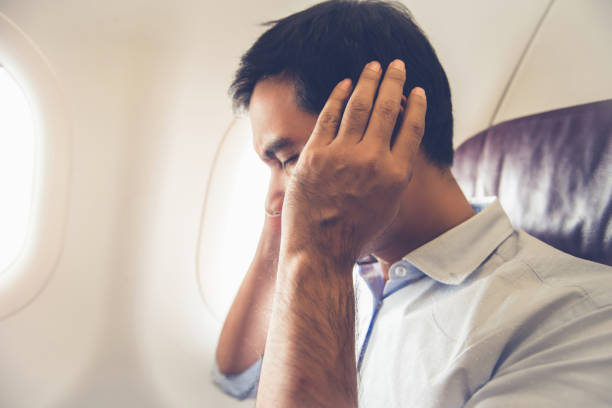The duration of clogged ears depends on what’s causing the issue in the first place. If your clogged ears are due to changes in air pressure, like from flying or diving, the discomfort usually resolves itself in a matter of hours. On the other hand, ear blockages caused by infections or significant earwax buildup can take up to a week to clear. If the condition persists for more than a week, consult a healthcare provider for a more targeted approach to your situation.
Table Of Contents
−- Understanding the Causes of Clogged Ears
- Tips for Safely Unclogging Ears
- Home Remedies for Clogged Ears
- The Role of Allergies in Clogged Ears
- The Impact of Dehydration on Clogged Ears
- Dietary Changes to Minimize Ear Clogs
- The Importance of Exercise in Preventing Clogged Ears
- Using Nasal Decongestants Responsibly
- Managing Stress as a Preventive Measure
- When to Consult a Professional
Understanding the Causes of Clogged Ears
Knowing what’s causing your clogged ears is the first step toward effective treatment. Ear clogs can happen for various reasons, such as mild ear infections, sinus infections, or even changes in air pressure during air travel. Everyday factors like allergies, dehydration, and common colds can also contribute to the sensation of fullness in your ears. Once you identify the root cause, you can take specific measures to mitigate the symptoms and speed up the healing process.

Tips for Safely Unclogging Ears
Treating clogged ears isn’t a one-size-fits-all endeavor; it requires understanding the underlying cause. For instance, if earwax buildup is your primary issue, avoid using cotton swabs, as that could worsen the problem by pushing the wax deeper into the ear canal. A damp cloth can be effective for gentle external cleaning. Moreover, applying a few drops of mineral or baby oil can help soften stubborn earwax. Specialized over-the-counter products for wax removal are also available, offering another safe option.
Home Remedies for Clogged Ears
Home remedies can be remarkably effective for minor cases of ear clogging. Steam inhalation is one of the most tried-and-true methods to alleviate symptoms. By leaning over a pot of boiling water and inhaling the steam, you can help break up earwax and reduce inflammation. Another popular method is nasal irrigation using a saline solution to flush out the sinuses and improve ear drainage. Over-the-counter ear drops are also an option but should be used cautiously, particularly if you have a perforated eardrum.
The Role of Allergies in Clogged Ears
Allergic reactions can contribute to ear clogging. When the body encounters allergens like pollen, pet dander, or dust mites, it releases histamines that can cause swelling in the ear canal. Managing these allergies through avoidance and appropriate medication can go a long way in reducing clog-related discomfort. If your allergies are severe, consider seeking medical advice for a more targeted treatment plan.
The Impact of Dehydration on Clogged Ears
When you’re dehydrated, your body produces less earwax, leading to potential ear clogs. Inadequate fluid intake can also cause inflammation and fluid retention in the Eustachian tubes. To stave off dehydration-related clogs, aim to consume adequate fluids throughout the day, steering clear of drinks that can exacerbate dehydration, like sugary beverages and alcohol.
Dietary Changes to Minimize Ear Clogs
Your diet plays a vital role in how frequently you experience clogged ears. A balanced diet rich in whole foods can help reduce inflammation and the likelihood of clogs. Avoid processed foods and limit your intake of dairy, sugar, and salt to help maintain clear ear canals. Hydration through water intake can further assist in keeping ear clogs at bay.
The Importance of Exercise in Preventing Clogged Ears
Regular physical activity is beneficial not just for your overall health but also for preventing clogged ears. Exercise enhances blood circulation and reduces inflammation, both of which can help avoid ear clogging. Stress-reducing exercises like yoga or aerobic activities can release endorphins, further assisting in warding off ear issues.
Using Nasal Decongestants Responsibly
Nasal decongestants can provide rapid relief for clogged ears, but they must be used judiciously. Prolonged use can result in rebound congestion and additional clogs. Always consult your healthcare provider for proper dosing and to discuss potential side effects, such as high blood pressure or dizziness.
Managing Stress as a Preventive Measure
Stress exacerbates conditions that could lead to clogged ears, such as infections or allergies. Practicing stress management techniques like deep breathing exercises, meditation, or simply taking time for yourself can positively impact how quickly your ear clogs resolve.
When to Consult a Professional
If you find that your clogged ears persist for over a week or you experience hearing loss, it’s important to seek medical advice. A healthcare provider can offer a more nuanced treatment plan, which might include medications or lifestyle changes designed to relieve the persistent blockage in your ears.
By now, you should have a comprehensive understanding of clogged ears, from their causes and duration to preventive measures and treatments. With this information, you’re well-equipped to deal with this uncomfortable condition and take steps to avoid it in the future.

Editorial Staff
Our writers, editors, content managers, and SEO specialist. We all take part in crafting amazing articles. We spend hours ensuring that each article is based on facts, researched, and thorough. You'll never want to click the back button to look for more answers other than here!
